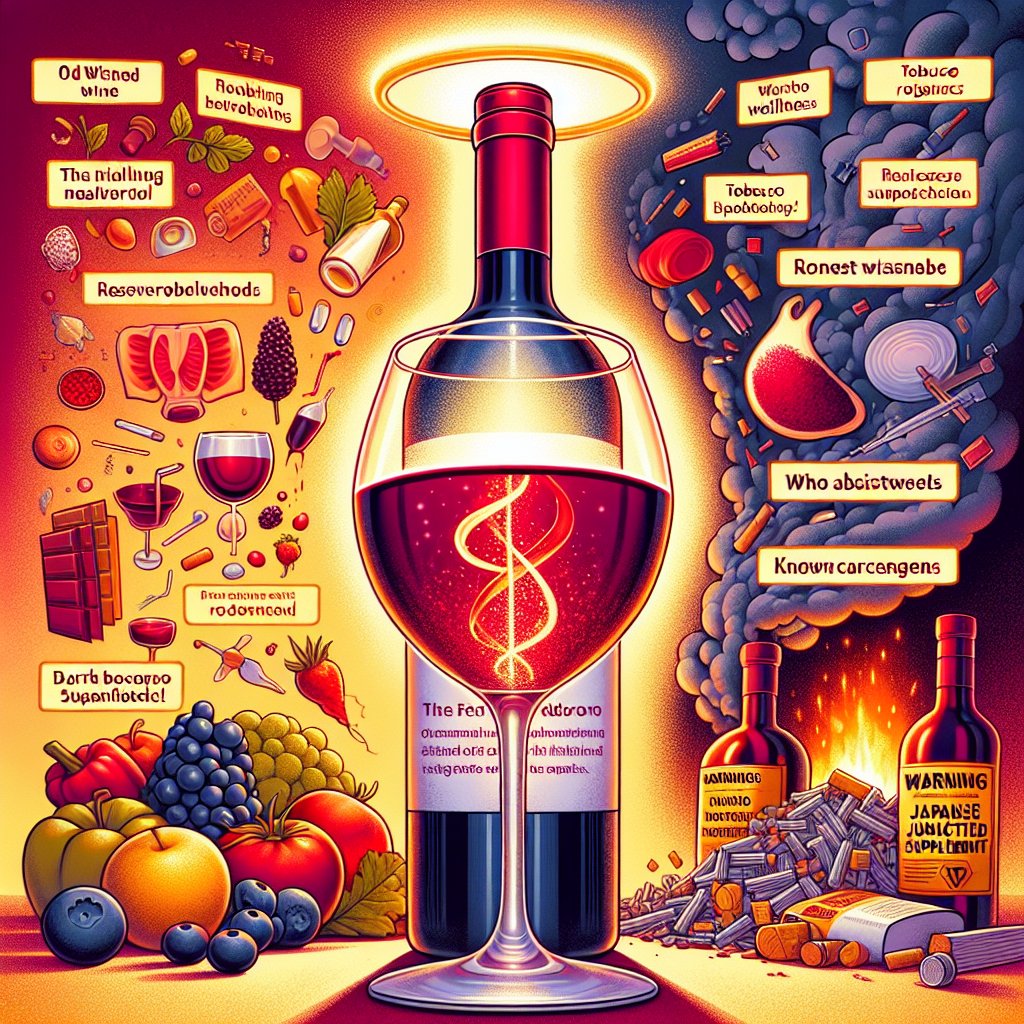Content created by AI
Red Wine Myths Uncorked: No Cheers for Health Benefits
For years, red wine has been celebrated as a glass of good health, thought to protect against a plethora of ailments and even extend life. However, latest findings might pour cold water on these heartwarming beliefs. The accumulated evidence, including a systematic review from JAMA Network Open and stark warnings from the World Health Organization (WHO), suggests that we may need to reassess our views on alcohol, including the treasured red wine.
The JAMA publication, analyzing the drinking patterns of nearly five million individuals, showed that low-level alcohol consumption did not significantly lower mortality risks, while higher quantities increased them. The WHO was more blunt, declaring in January 2023 that there's no safe level of alcohol ingestion. They categorize alcohol alongside known carcinogens such as asbestos and tobacco, with alcohol itself being a risk factor for at least seven cancer types.
This modern stance clashes with the older, more romanticized belief in the ‘French paradox,’ popularized by a 1991 "60 Minutes" episode. The paradox suggested that despite a high-fat diet, the French enjoyed lower rates of cardiovascular disease, perhaps due to red wine's purported benefits. This link led to a surge in red wine's popularity. Yet this argument fails to recognize considerable confounding variables such as lifestyle and dietary differences between the French and Americans.
The scientific community has scrutinized these variables, scrutinizing factors like lower sugar and processed food intake, higher consumption of fruits and vegetables, more physical activity, lower obesity rates, and stronger social ties in French society. Moreover, there have been accusations that French doctors have historically underreported heart disease, adding to skepticism over these studies.
The pivot towards red wine's health benefits often hinged on resveratrol, an antioxidant found in red grapes. However, the amounts of resveratrol present in wine are too miniscule to be therapeutically effective without consuming impractical quantities. Foods like blueberries and dark chocolate, and even supplements derived from Japanese knotweed, can provide resveratrol without the risks of alcohol.
Despite the damning evidence, the notion of red wine as a healthful choice is ingrained, buoyed by a culture that embraces alcohol and a robust industry with significant marketing budgets. In 2022, the global red wine market value exceeded $92 billion and is expected to grow substantially, indicating its continued prominence in consumer habits.
Yet perceptions may be shifting as more people recognize alcohol's negative effects, including disrupted sleep and long-term health risks. The halo once bestowed upon red wine is diminishing as health-conscious trends gain traction, though change is gradual against long-standing cultural norms and habits.
Red wine, once a staple of balance and purported longevity, is losing its place at the healthy table. With recent scientific revelations and growing awareness, it might only be a matter of time before red wine is regarded more as an occasional indulgence rather than a health elixir.










